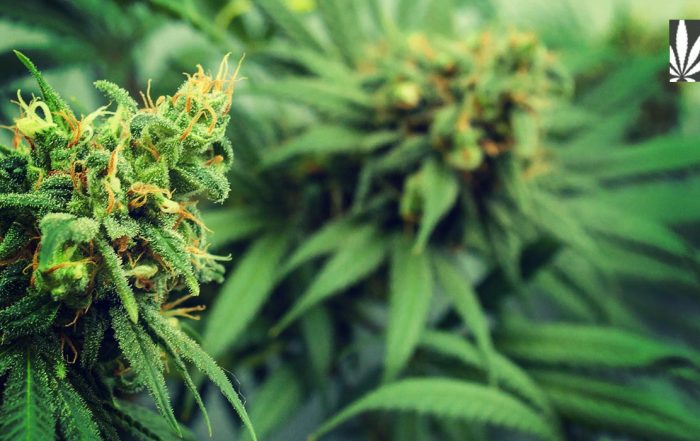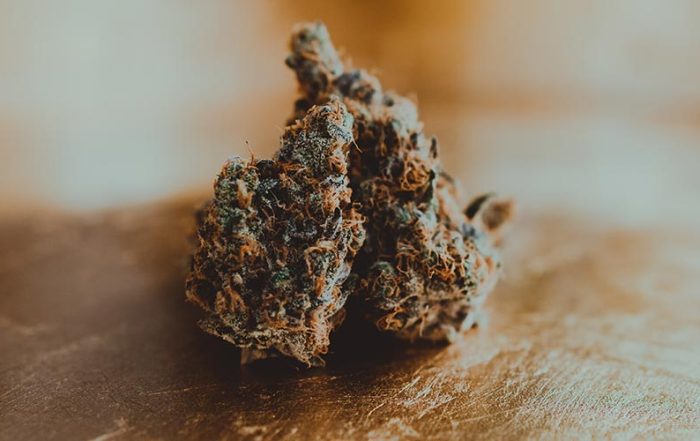Connecticut Marijuana Laws
Medical marijuana use is legal for registered patients, though they do have restrictions. Patients may possess up to 2.5 ounces purchased from a dispensary, but can not gift or grow marijuana in their home. Though only registered medical marijuana patients may consume cannabis, possession of under 14 grams has been decriminalized for the general public.

LAW BREAKDOWN
Connecticut marijuana laws allow use of the drug for medical purposes, while recreational use has been decriminalized. Distribution and cultivation are illegal, as is any form of cannabis concentrate. Paraphernalia is likewise illegal.
Possession
Possession of less than half an ounce of marijuana on a first-time offense comes with a civil penalty of $150. For subsequent offenses, the fine increases to $200 – $500.
Possession of more than half an ounce of marijuana is punishable by a prison term of no more than 1 year, and a fine of up to $2,000.
Possession within 1,500 feet of a school or daycare center will be punished by imprisonment and a probation term involving community service.
| Offense | Penalty | Incarceration | Max. Fine |
|---|---|---|---|
| Less than 1/2 oz (first offense) | Civil Penalty | N/A | $ 150 |
| Less than 1/2 oz (subsequent offense) | Civil Penalty | N/A | $ 500 |
| More than 1/2 oz | Misdemeanor | 1 year | $ 2,000 |
Scroll to see the rest of the table.
Distribution and Cultivation
It is a felony in Connecticut to cultivate marijuana, distribute it, or possess it with intent to distribute it. Where the offense involves less than 1 kilogram, the maximum penalty is 7 years in prison and $25,000 in fines on a first offense. The maximum penalty increases to a possible 15 years in prison and $100,000 on a subsequent charge.
Where more than 1 kilogram is involved, there is a mandatory minimum of 5 years in prison, a maximum of 20 years, and up to $25,000 in fines. Subsequent charges are subject to a longer minimum sentence, 10 years, a maximum prison term of 25 years, and a possible $100,000 in fines.
Non-violent offenders may have the mandatory minimum sentence overturned if a particular reason is provided and accepted by the court.
Three years are added to the prison sentence for distribution or cultivation of cannabis within 1,500 feet of a school, public housing project, or daycare center. Sale by an adult to a minor is punishable by an extra 2 years in prison.
| Offense | Penalty | Incarceration | Max. Fine |
|---|---|---|---|
| Less than 1 kg (first offense) | Felony | 7 years | $ 25,000 |
| Less than 1 kg (subsequent offense) | Felony | 15 years | $ 100,000 |
| 1 kg or more (first offense) | Felony | 5* – 20 years | $ 25,000 |
| 1 kg or more (subsequent offense) | Felony | 10* – 25 years | $ 100,000 |
| Within 1,500 feet of an elementary/middle school, public housing project, or daycare center is punishable by an additional 3 years imprisonment. | |||
| By a person 18 years or older to a person under 18 is punishable by an additional 2 years imprisonment. | |||
| Distribution or cultivation includes possession with intent to distribute or cultivate marijuana. | |||
| * Mandatory minimum sentence | |||
Scroll to see the rest of the table.
Concentrates
CT marijuana laws treat concentrated forms of the drug, including hashish, the same as flower. That means no special penalties are imposed for possession, cultivation, or distribution of concentrates. But like all forms of marijuana, they are illegal for recreational use.
Paraphernalia
The penalties for possession of paraphernalia vary depending on the amount of cannabis involved. Possession of paraphernalia with intent to use it to grow, distribute, or use less than half an ounce is a simple civil infraction with a maximum fine of $300. Possession of paraphernalia for use with more than half an ounce of marijuana is a misdemeanor punishable by up to 3 months in jail and $500 in fines.
Distribution of paraphernalia or possession with intent to deliver is punishable by up to a year in prison and a max. $2,000 fine.
An extra year is added to the sentence for distributing or possessing paraphernalia within 1,500 feet of a school.
| Offense | Penalty | Incarceration | Max. Fine |
|---|---|---|---|
| With the intent to use it to cultivate, distribute or inhale/ingest less than 1/2 oz | Civil Infraction | N/A | $ 300 |
| With the intent to use it to cultivate, distribute or inhale/ingest more than 1/2 oz | Misdemeanor | 3 months | $ 500 |
| Distributing paraphernalia or possessing with the intent to distribute | Misdemeanor | 1 year | $ 2,000 |
| Distributing or possessing paraphernalia within 1500 feet of an elementary/middle school is punishable by an additional 1 year of imprisonment. | |||
Scroll to see the rest of the table.
Forfeiture
Any item used for the cultivation or distribution of marijuana is subject to forfeiture.
Medical Marijuana
MEDICAL MARIJUANA
The law was signed into law in 2012, allowing qualifying patients to use medical marijuana to treat a long list of conditions. Qualifying patients must register with the Department of Consumer Protection before engaging in the palliative use of marijuana. Patients in Connecticut must be aged 18 or older. “Prison inmates, or others under the supervision of the Department of Corrections, would not qualify, regardless of their medical condition.”
QUALIFYING CONDITIONS:
- Amyotrophic lateral sclerosis
- Cachexia
- Cancer
- Cerebral Palsy
- Chronic neuropathic pain associated with degenerative spinal disorders
- Chronic pain of at least 6 months duration associated with a specified underlying chronic condition refractory to other treatment intervention
- Chronic pancreatitis (subject to approval by the legislature’s Regulations Review Committee)
- Complex regional pain syndrome
- Crohn’s disease
- Cystic Fibrosis
- Ehlers-Danlos Syndrome
- Epilepsy
- Glaucoma
- Hydrocephalus with intractable headache
- HIV or AIDS
- Interstitial cystitis
- Intractable headache syndromes
- Intractable neuropathic pain that is unresponsive to standard medical treatments
- Intractable spasticity
- Irreversible Spinal Cord Injury with Objective Neurological Indication of Intractable Spasticity
- Medial arcuate ligament syndrome, or MALS syndrome
- Multiple Sclerosis
- Muscular dystrophy
- Neuropathic facial pain
- Osteogenesis imperfecta
- Parkinson’s Disease
- Post herpetic neuralgia
- Post-surgical back pain with a condition called chronic radiculopathy
- Post laminectomy syndrome
- Post-traumatic Stress Disorder (PTSD)
- Severe psoriasis and psoriatic arthritis
- Severe rheumatoid arthritis
- Sickle cell disease
- Spasticity
- Spasticity or Neuropathic Pain Associated with Fibromyalgia
- Terminal Illness Requiring End-Of-Life Care
- Tourette syndrome
- Ulcerative colitis
- Uncontrolled Intractable Seizure Disorder
- Vulvodynia and vulvar burning
- Wasting syndrome
- Other medical conditions may be approved by the Department of Consumer Protection
PATIENT POSSESSION LIMITS:
One-month supply
HOME CULTIVATION:
No
STATE-LICENSED DISPENSARIES:
Yes
CAREGIVERS:
Yes. A qualifying patient may have no more than one primary caregiver at a time.
RECIPROCITY:
No
Connecticut Marijuana Attorneys
The following Connecticut lawyers are actively involved in the practice of cannabis law:








